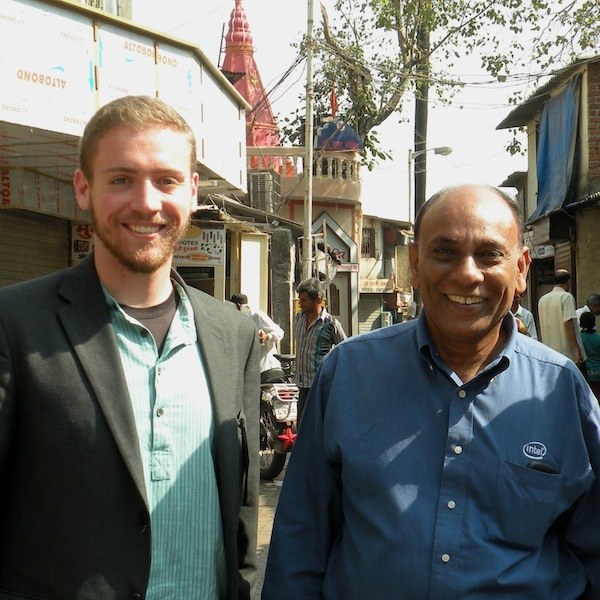
A Client Site Visit to Mumbai's Slums
A few times a year, I have opportunities to meet my remote clients, though rarely do I meet during a vacation. While on a call with Arvind Amin, a client project manager, I was talking about my holiday plans to travel around India. Arvind Amin and I had been working together for a few months to revamp their Salesforce org’s Non-Profit Starter Pack and offer ways to increase efficiency for reporting. Coincidentally, he and I were in Mumbai during the same week and we set up time to meet for lunch, and tour Pratham education programs in the slums.
About Pratham USA
Pratham USA was established to support the education of children in India’s rural villages and dense urban cities. The organization provides resources and funding for a variety of programs geared towards increasing literacy rates and re-enrolling out of school children in educational programs. To set expectations about education levels, Mumbai is part of the Maharashtra state, in which 98% of students between ages 6-14 are enrolled in a form of education. A published ASER study led by Pratham found that only 53% of fifth graders are capable of reading a second grade text, and 41% can perform basic division (e.g. 4 / 2 = 2).
By offering learning centers, a book library program, education for volunteer educators, and vocational programs, Pratham is able to engage a variety of children across India to help them achieve their potential. Opportunities for education exist from the preschool to late teen age groups, each offering value that is otherwise unavailable.
Learning Centers, Reading, and Camps
Arvind and I toured a few areas of Pratham’s programs, the first of which being an Urban Learning Center. Urban Learning Centers are typically a room with educational resources, where students are dropped off and a teacher to guides them through an educational path. Analogous to primary education in the US, these places offer a variety of games like “Simon Says”, a dedicated rest time, and learning about topics like geography, maths, and language.

Our second destination was a library built 15 feet above the ground, accessible by a steep ladder. Within this library, a class was meeting with another volunteer teacher to read through a variety of Urdu texts. Below is a student that recites a passage from one of the books, and his classmates applauded at the end.

For students that are not able to meet during regular school sessions, Pratham offers learning advancement camps in summer months. Each camp meets for a week, and students are tested upon entry to set baseline metrics. The camp meets intensively to provide education that will further the student’s capacity in a particular subject by at least one level. Our destination was the second story of the teacher’s parent’s house, where a group of 15 kids met in a room about 7 x 9 feet.

Each place we visited featured a hanging organizer with a variety of age-appropriate books produced by Pratham’s Read India program. Prior to Pratham, the children’s book market was largely absent and books geared towards specific grade levels were sparse. With these packages, students are able to read texts that fit with their comprehension and language skills, and in the case of the library visited, take them home to their families. Below, Arvind and I are about to go into a library built 15 feet above ground.
How was India?
People ask me about the trip, and my first thoughts are of the excellent food, and opportunity to visit Pratham’s sites with Arvind. Holding a book from a childrens’ library and being able to watch a child finish a passage from the book to the applause of his peers is a warming memory, and standing in a teacher’s two-room apartment watching her lead a class to a higher education level in a week is remarkable.
Do you have similar experiences to share with one of your non-profits or consultancies? If so, let us know below in comments, via Twitter @RogerMitchell, or on our Facebook page.
NOTE: If you would like to donate to Pratham USA, please see their online donations page here. Arkus does not receive any credits or benefits from directing donations to organizations.

